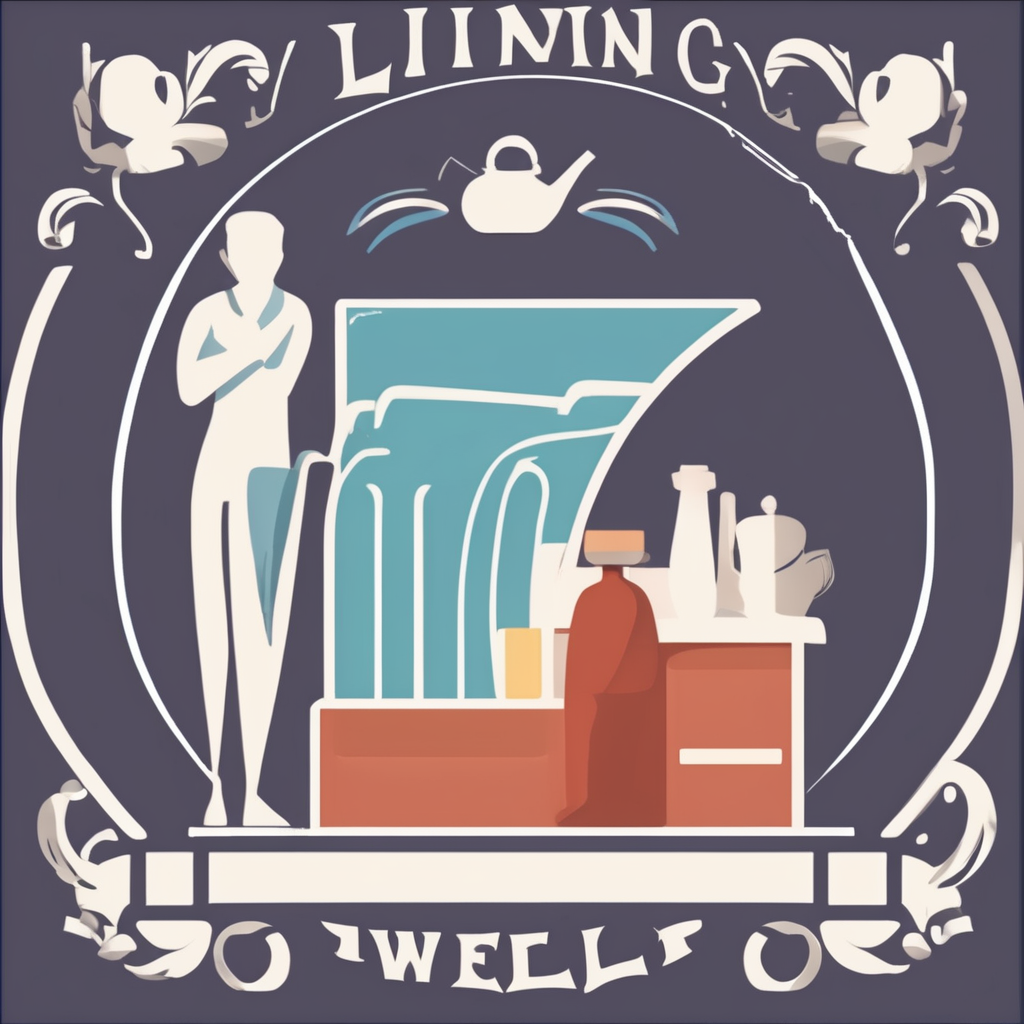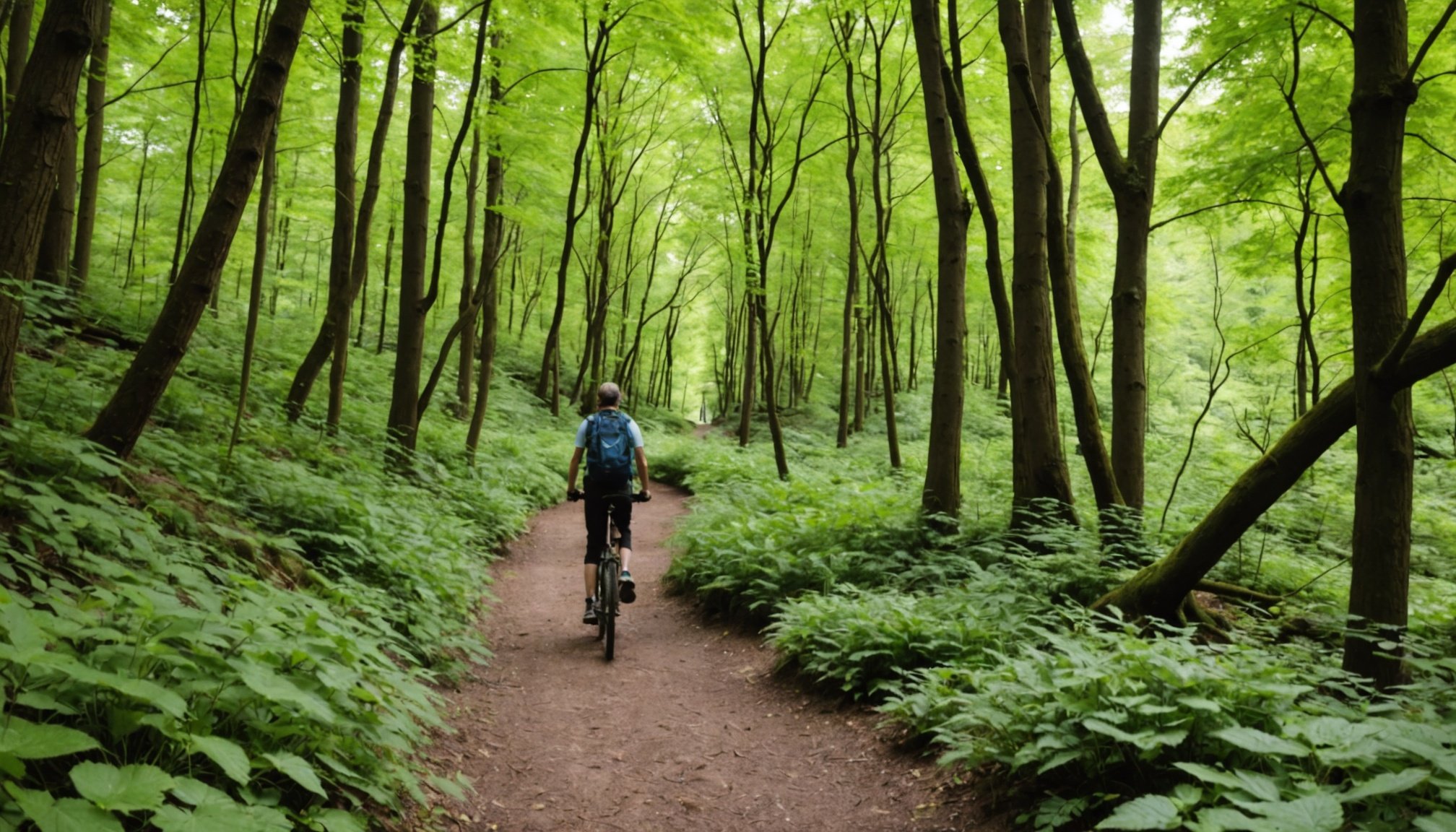Unwinding in the Wild: The Impact of Nature on Stress Relief for City Dwellers
In the hustle and bustle of urban life, it’s easy to forget the healing power of nature. As cities continue to grow and the demands of modern living intensify, finding ways to manage stress has become more crucial than ever. This article delves into the profound impact that spending time in natural environments can have on stress relief for city dwellers, exploring the scientific evidence, practical benefits, and ways to incorporate nature into your daily life.
The Science Behind Nature’s Stress Relief
Numerous studies have highlighted the significant role that natural environments play in reducing stress levels and improving overall health and wellbeing.
This might interest you : Empowering Adolescents: Enhancing Asthma Management Through Mobile Health Apps
Reduced Stress and Improved Mental Health
Research has consistently shown that exposure to natural environments can lower levels of cortisol, the hormone associated with stress, and improve mental health outcomes. A study published in the Journal of Environmental Psychology found that contact with nature can reduce stress, improve attention, and have positive impacts on physical health[2].
For instance, a field experiment on the influence of urban green environments on stress relief measures revealed that even short-term visits to nature areas have positive effects on perceived stress relief compared to built-up environments[3]. This suggests that simply taking a short walk in a park or spending time in a garden can be a powerful tool for stress reduction.
Also read : The Role of Dietary Antioxidants in Enhancing Vision Health Among Seniors: A Deep Dive into Aging Eye Care
The Concept of Forest Bathing
Forest bathing, a practice originating from Japan, involves spending time in the forest to promote physical and mental wellbeing. This concept is rooted in the idea that being immersed in a natural environment can have a profound impact on our health. Studies have shown that forest bathing can reduce stress levels, improve mood, and even lower blood pressure[1].
Health Benefits of Spending Time in Nature
The health benefits of spending time in nature are multifaceted and well-documented.
Physical Health Benefits
- Improved Air Quality: Green spaces absorb pollutants and harmful gases from the air, releasing oxygen and improving air quality. This is particularly important in urban areas where air pollution is a significant health risk[5].
- Reduced Noise Pollution: Trees, plants, and leaves help dampen noise from cars, aircraft, and industrial machines, reducing the negative impacts of noise pollution on health[5].
- Mitigating Urban Heat Islands: Green urban spaces can produce a cooling effect, decreasing urban citizens’ exposure to extreme heat and mitigating the urban heat island effect[5].
Mental Health Benefits
- Reduced Stress and Anxiety: Exposure to natural environments has been shown to reduce stress and anxiety levels. This is partly due to the calming effects of natural sounds, sights, and smells[2].
- Improved Mood: Spending time in nature can improve mood and reduce symptoms of depression. The fresh air, sunlight, and connection with nature all contribute to this positive effect[1].
- Enhanced Cognitive Function: Being in nature has been linked to improved attention and cognitive function. This makes it an excellent way to take a break from the demands of urban life and recharge[2].
Practical Ways to Incorporate Nature into Your Life
Incorporating nature into your daily routine doesn’t have to be complicated. Here are some practical ways to do so:
Urban Green Spaces
- Visit Local Parks: Take a walk or have a picnic in a nearby park. Even a short visit can have a positive impact on your stress levels.
- Use Green Roofs and Walls: If possible, consider adding green roofs or walls to your home or office. These can provide a natural oasis in the midst of urban chaos[5].
Forest Bathing
- Find a Nearby Forest: Look for forests or wooded areas near your city where you can spend time walking and immersing yourself in nature.
- Guided Tours: Consider joining guided forest bathing tours to learn more about the practice and its benefits.
Home Gardens
- Create a Garden: If you have the space, create a garden in your backyard or even on your balcony. This can be a peaceful retreat from the stresses of daily life.
- Indoor Plants: If outdoor space is limited, bring nature indoors with plants. Indoor plants can help purify the air and create a calming environment.
Table: Comparing Urban and Natural Environments
| Aspect | Urban Environment | Natural Environment |
|---|---|---|
| Stress Levels | High levels of cortisol due to noise, pollution, and crowding | Reduced cortisol levels due to calming effects of nature |
| Air Quality | Poor air quality due to pollution from vehicles and industries | Improved air quality due to absorption of pollutants by plants |
| Noise Pollution | High levels of noise from traffic, construction, and other urban activities | Reduced noise levels due to sound dampening by trees and plants |
| Mental Health | Increased risk of mental health problems due to stress and lack of natural connection | Improved mental health due to reduced stress and increased connection with nature |
| Physical Health | Increased risk of chronic diseases due to poor air quality and lack of physical activity | Improved physical health due to better air quality, reduced noise pollution, and increased physical activity |
Quotes and Insights from Experts
- “Contact with nature can reduce stress, improve attention, and have positive impacts on physical health,” notes a study published in the Journal of Environmental Psychology[2].
- “Green public spaces and access to nature can reduce stress, improve morale, support immune systems, and even reduce the risk of chronic diseases like asthma,” according to research on urban greening[5].
Tips for Maximizing the Benefits of Nature
Spend Quality Time in Nature
- Be Present: When spending time in nature, try to be fully present in the moment. Leave your phone behind and focus on your surroundings.
- Engage Your Senses: Pay attention to the sights, sounds, and smells around you. This can help you feel more connected to nature.
Make It a Habit
- Schedule Nature Time: Incorporate time in nature into your daily or weekly routine. This could be as simple as taking a short walk in a park each day.
- Find Activities You Enjoy: Whether it’s hiking, gardening, or simply sitting in a park, find activities that make you feel good and help you connect with nature.
Involve Others
- Join Nature Groups: Look for local groups or clubs that organize nature walks, hikes, or other outdoor activities.
- Bring Family and Friends: Spending time in nature with loved ones can enhance the experience and create lasting memories.
In a world where urbanization is on the rise, it’s more important than ever to recognize the healing power of nature. By spending time in natural environments, city dwellers can reduce stress levels, improve their mental and physical health, and enhance their overall wellbeing. Whether it’s through forest bathing, visiting urban green spaces, or simply spending time in your own garden, incorporating nature into your life can have profound benefits.
So next time you feel the stresses of urban life weighing you down, take a step outside and let nature help you unwind. As the evidence clearly shows, nature is more than just a pretty view – it’s a powerful tool for improving your health and wellbeing.











